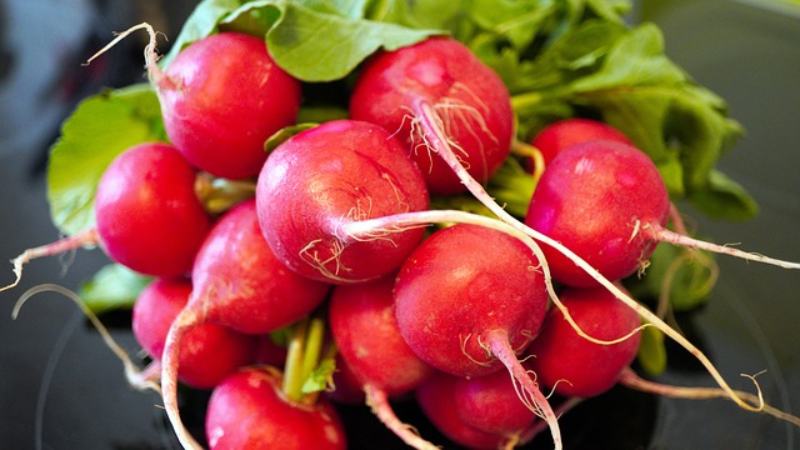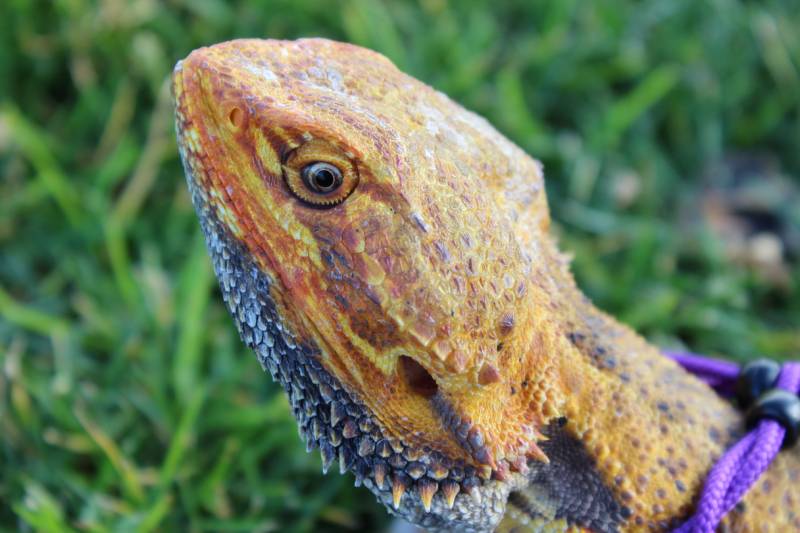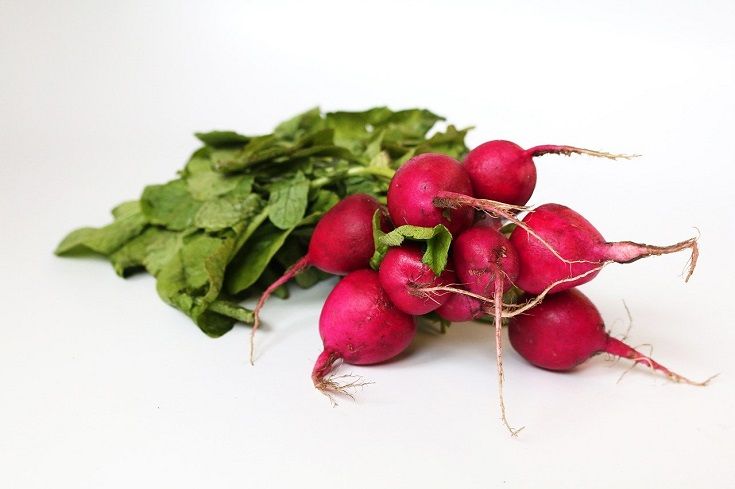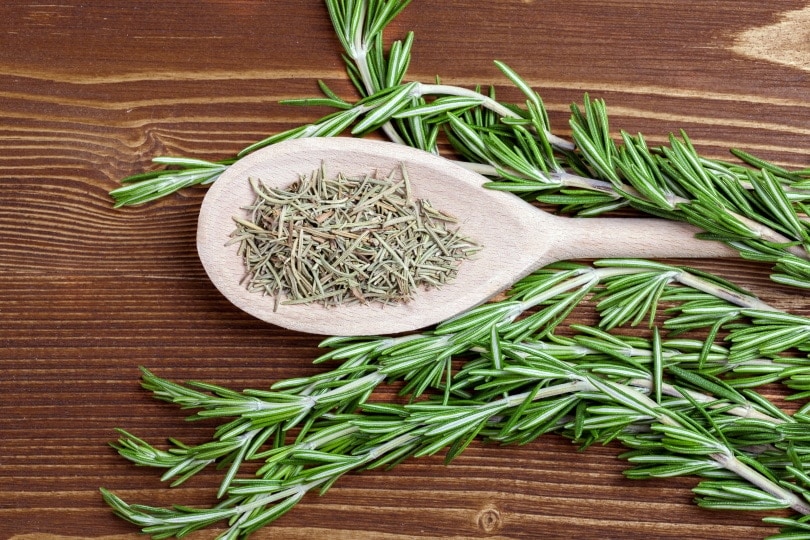Can Bearded Dragons Eat Radish? Vet-Approved Pros, Cons & FAQ
Updated on

Feeding your bearded dragon a balanced diet includes providing them with animal protein/insects and vegetables, but not all veggies are recommended for your pet. Doing research before introducing a new food to your bearded dragon’s diet is essential.
If you have radishes and are wondering if they are okay for your beardie, radishes are indeed safe for bearded dragons. However, they should only be given as occasional treats and not be a part of their regular diet.
Let’s discuss why you need to take it easy when feeding radishes to your bearded dragon and the best way to prepare and serve them.
How Are Radishes Good for Bearded Dragons?
The radish is a vegetable, specifically a root vegetable, that is part of the cabbage family, which includes cauliflower, broccoli, kale, and cabbage.
Radishes have several health benefits, whether from the vegetable itself or its greens, which are the stems and leaves. They contain many of the same healthy nutrients as the other vegetables in the cabbage family:
- Fiber
- Magnesium
- Potassium
- Iron
- Vitamins C and K
- Antifungal and antimicrobial properties
Beyond these nutrients, radishes are also known for their water content.

Water
Radishes are among the vegetables with the highest water content at 95%, which places them close to cucumbers, which are the highest at 96% water.
The benefit of feeding radishes to your beardie is that you can hydrate your pet when necessary. This is a great alternative for beardies that don’t want to drink water from a bowl.
How Are Radishes Bad for Bearded Dragons?
There are several reasons that radishes aren’t recommended as a regular part of a bearded dragon’s diet.
Too Much Water
If beardies eat too many radishes, it can cause diarrhea, which can quickly lead to dehydration. Also, extra water can fill up your beardie’s belly, which means they get less food and nutrients.
Goitrogens
The vegetables in the cabbage family, including radishes, contain goitrogens, which are micronutrients that can cause the enlargement of the thyroid gland.
Granted, it would take a large number of radishes for your bearded dragon to suffer from a malfunctioning thyroid, but it’s always better to be safe than sorry.

Can Bearded Dragons Eat Radish Greens?
Technically, the radish greens are better than the actual radishes because they are higher in vitamin A and have a lower concentration of water. This will give your bearded dragon more nutrition without filling them up with water.
While radishes and the greens are safe for beardies for the most part, they aren’t the best choices of food for your pet.
How Should I Prepare Radishes for My Bearded Dragon?
Now that you know radishes and their greens are safe, you can chop up a small amount of them and mix them with other greens. You can also sprinkle a small amount of phosphorus-free calcium powder on top before serving. If you’re concerned about your beardie’s water intake, radishes and even cucumbers on occasion can help.
You should aim to only give your bearded dragon radishes and greens about once every 2 weeks or so.

What Are Safe Vegetables for My Bearded Dragon?
A bearded dragon’s diet should consist of leafy green vegetables, particularly the darker green kind, and animal-based foods, which are usually insects. Since beardies are omnivores, they should have about 50% plants and 50% insects.
The following veggies are excellent sources of nutrition that are safe to give your beardie and should constitute about 80% to 90% of their plant-based food:
- Alfalfa hay/chow
- Bell peppers
- Bok choy
- Broccoli
- Cilantro
- Clover
- Collard greens
- Dandelions
- Escarole
- Green beans
- Kohlrabi
- Parsley
- Savory
- Turnip greens
- Watercress
These veggies are safe when given in moderation:
- Asparagus
- Beet greens
- Cactus
- Carrots
- Cooked sweet potatoes
- Corn
- Cucumbers
- Kale
- Mustard greens
- Okra
- Parsnips
- Peas
- Red/green cabbage
- Sprouts
- Squash (various)
- Swiss chard
Fruit should only make up a small part of your bearded dragon’s diet. The following are all great options for bearded dragons:
- Apples
- Apricots
- Bananas (with skin)
- Dates
- Figs
- Grapes/raisins
- Guava
- Kiwi
- Mangoes
- Melons
- Peaches
- Pears
- Raspberries
- Star fruit
- Strawberries
- Tomatoes
What Are Vegetables That My Bearded Dragon Shouldn’t Eat?
While many vegetables are good for your beardie, there are several that you shouldn’t feed your bearded dragons at all:
- Avocados
- Eggplants
- Garlic
- Iceberg lettuce
- Leeks
- Mushrooms
- Onions/chives
- Rhubarb

Conclusion
Radishes are perfectly safe to feed your bearded dragon as long as it’s in moderation. They are suitable options if you suspect that your beardie isn’t drinking enough water, but if they are well-hydrated, only give them a small serving of radishes and greens a few times a month.
Speak to your herp veterinarian about radishes or any other questions that you might have about your bearded dragon’s diet. It’s important to add variety to your pet’s diet, but as long as you provide them with approved vegetables and insects, your beardie will be happy and healthy.
See also:
- Can Bearded Dragons Eat Leeks? Vet-Approved Pros, Cons & Tips
- Can Bearded Dragons Eat Onions? Our Vet Approved Advice
Featured Image Credit to: matthiasboeckel, Pixabay












